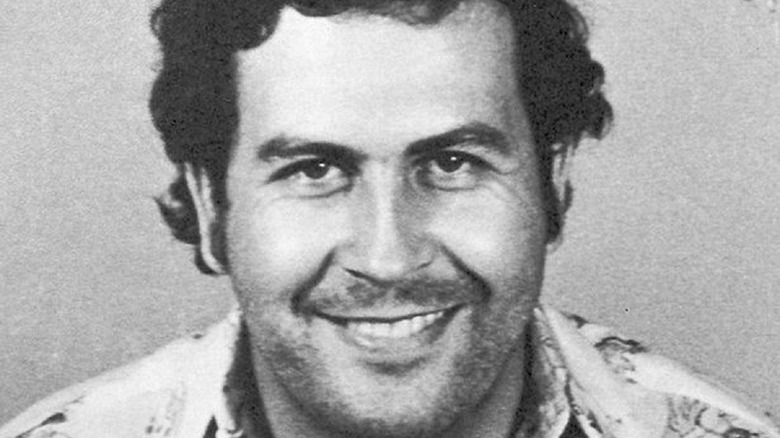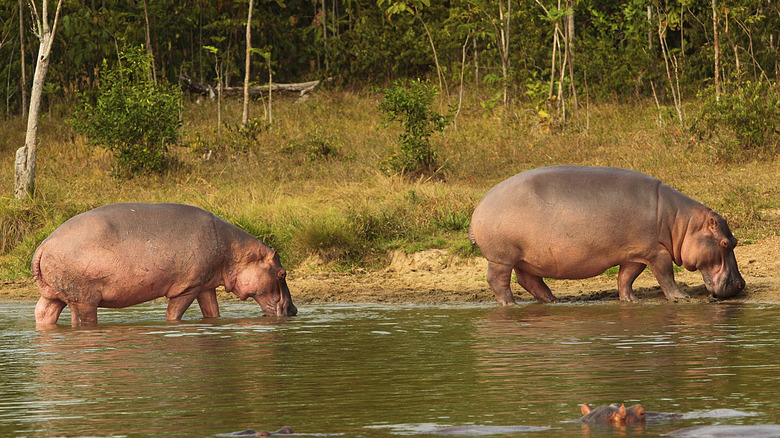Why Pablo Escobar's 'Cocaine Hippos' Are Legally People
Colombian drug lord Pablo Escobar became a billionaire at the peak of his power, and he built an estate known as Hacienda Napoles. The home was located far from the city and was constructed amid a beautiful, natural setting. The estate had its own private airport, a go-kart racing track, a bull ring, and even his very own zoo that consisted of elephants, giraffes, and horses, among others. Escobar also illegally brought four hippos to the zoo (via Metro).
When Escobar was apprehended and killed by authorities in 1993, Hacienda Napoles was seized. The majority of animals were sent to zoos, but the hippos were left to roam the property freely, as they were too heavy and costly to be moved. As the years passed, the animals — called cocaine hippos — multiplied to about 100, according to Business Insider. The increasing number of hippos has become an environmental problem, as they are invasive and can be aggressive. Furthermore, their excrement changes water chemistry in the area. "Within a couple of decades, there could be thousands of them," ecologist Jonathan Shurin said. As a solution, the Colombian government resorted to sterilization to stop the cocaine hippos from multiplying at a rapid rate.
Cocaine hippos have rights under the United States law
As of October 2021, the Colombian government said that they have sterilized two dozen cocaine hippos. With a large number of hippos, though, they say that some of them need to be killed. This has brought controversy, as those living in the rural area where the hippos roam have come to love them as their own. In fact, the people make sure that no harm comes to the hippos. "The community keeps an eye on us to make sure that we are actually sterilizing and not doing anything else," veterinarian Gina Serna-Trujillo said, as reported by the Tampa Bay Times.
In the United States, the Animal Legal Defense Fund (ALDF) sued the government of Columbia on behalf of the cocaine hippos. The animal rights advocacy group did so in order to save the hippos from being put to death. A Cincinnati district court has given "interested persons" status to the hippos, which gives them rights under U.S. law. However, Colombian law professor Camilo Burbano Cifuentes told CBS News that the decision has no bearing. "The ruling has no impact in Colombia because they only have an impact within their own territories. It will be the Colombian authorities who decide what to do with the hippos and not the American ones," he said.
The cocaine hippos being recognized legally as people in the United States is still a momentous event, as it is the first time any animal has been granted such a status in the country (via Metro).

